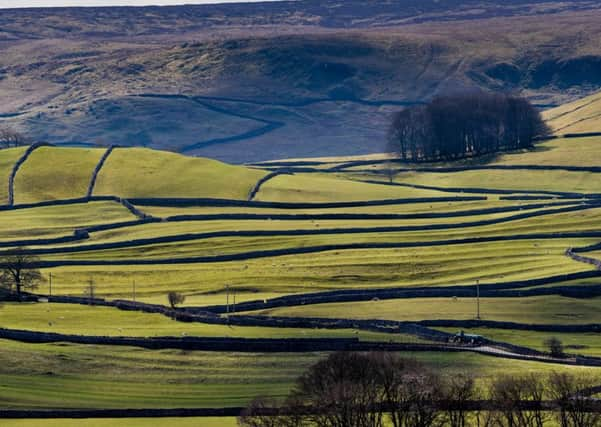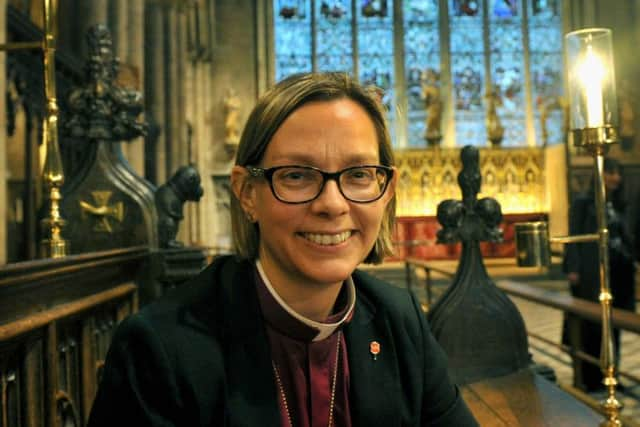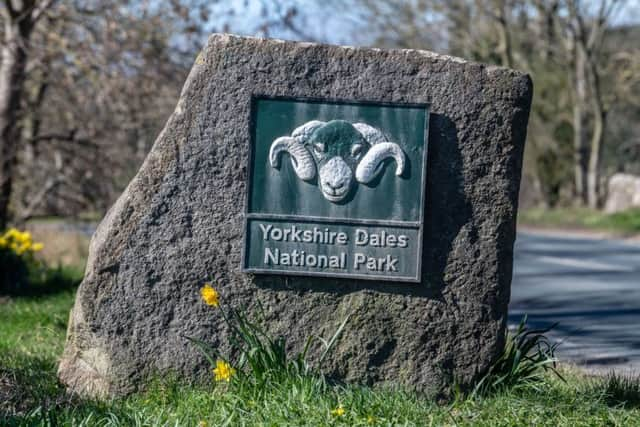North Yorkshire’s Rural Commission must offer a story of hope and be open with people – The Bishop of Ripon


Doug hails from New Zealand, and is well known in farming circles as someone who has spoken openly about his own profound struggles with mental health, and what enabled him to shift his perspective from despair to one of optimism and hope. ‘It’s ok to say I’m not ok’, is one of the phrases that stood out from his talk.
It was clear to me afterwards that what Doug was saying had struck home with a number of people present. A farmer came up to myself and Charles Smith (the chief executive of the Farming Community Network, the organisation who had organised Doug’s tour, and of whom I am a trustee), and spoke to us about his anxiety concerning debt, his desire to pass on a strong and sustainable farming business for his family, and his fears that this was looking increasingly impossible. I wondered who he might have spoken with under other circumstances?
Advertisement
Hide AdAdvertisement
Hide Ad

One of the more surprising elements of Doug’s talk happened about three-quarters of the way through. He asked us all to stand up and stretch. I, for one, was quite glad about that. It was a packed room, and we were all squashed together. We stood up and then Doug said: “Give the person next to you a hug.”
I happened to be sitting next to Stuart Roberts, a vice-president of the National Farmers’ Union, who I know a little bit, but not very well. “Go on,” urged Doug, and with a good dose of laughter there were hugs all round. Stuart tweeted later about going to an event and hugging a bishop (and singing, and learning about how geese fly, both of which were included in Doug’s inspiring presentation). It was certainly unexpected, but it brought home to me the vital importance of connection.
Advertisement
Hide AdAdvertisement
Hide Ad

The internet and social media might give the impression that we are more connected globally than we ever have been, and yet we live in a fractured world where people can go for days on end without speaking to anyone. This is not an exclusively rural or urban issue, but it takes wisdom and vigilance to know how best to meet those needs in such a way that people don’t fall through the proverbial gaps.
Connection is one word that has been distinctly lacking in government response to rural issues. The Yorkshire Post has on several occasions called for a comprehensive rural strategy, one which enables a cohesive rather than siloed approach to setting and delivering policy. Another of Doug’s phrases was this one: “We were given two hands, one for helping ourselves and one for helping others.” It’s not hard to see how important that is for each of us, but how necessary that must surely be for those setting the agenda in Westminster?
It’s also important on a more local level. The news that North Yorkshire County Council is establishing a rural commission to examine the myriad of issues that affect the present and future sustainability of rural communities, is welcome. The commission (chaired by the Dean of Ripon) will attend to its work over an eight-month period, and will make recommendations for implementation. Time will tell whether this will be a worthwhile endeavour.
A small group of experts meeting behind closed doors might not be the best way of going about their work, so it will be vital for the commission to communicate to the public what it is doing, and how its work will be shaped. Doug mentioned the importance of disrupting ourselves or we could end up being disrupted. In that sense, perhaps the rural commission might be a force for disruption to seize the initiative and set a different kind of agenda going forward?
Advertisement
Hide AdAdvertisement
Hide AdResilience is not something that can be taught or read about in a book. It is a way of living that is shaped and forged through the experiences we have, and the responses we make. Story-telling is a powerful way of naming issues and events that provoke many emotional responses: joy, fear, sorrow and happiness. That is why Doug Avery’s presentation was so compelling. He spoke from a position of experience, knowledge and deep integrity and inspired confidence in those who came to hear him.
Many of the rural communities that I visit are excellent at story-telling. I hope that the rural commission will not only listen to the stories of those it calls to give evidence, but will be the shaper of a new story of hope, purpose, resilience and celebration of all that our rural communities have to offer.
The Right Reverend Dr Helen-Ann Hartley is the Bishop of Ripon.